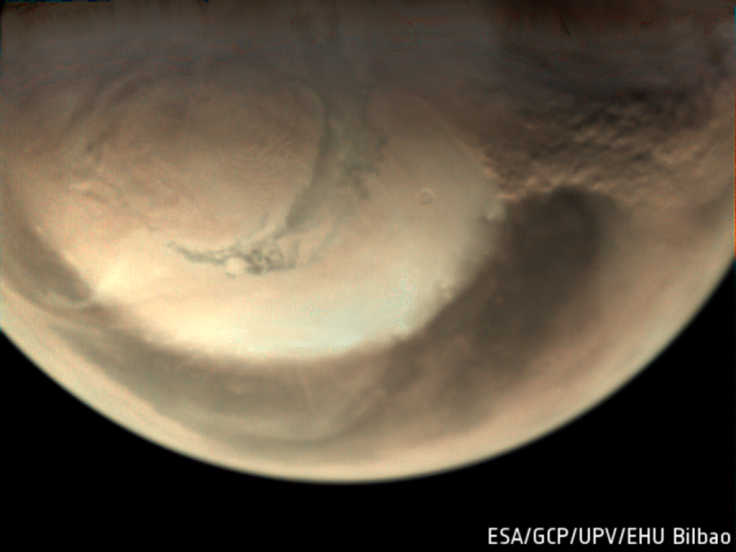SpaceX CEO Elon Musk Reveals Details About Mars, Sun And One-Planet Civilizations

SpaceX, Neuralink and Tesla CEO Elon Musk harnessed whatever Carl Sagan he had in him to muse about space travel, "this tiny blue dot," and one-world civilizations that "ultimately extinguished themselves and were destroyed" in a thought-provoking podcast on Tuesday.
Guesting on the “Artificial Intelligence Podcast” hosted by Lex Fridman, Musk was eventually drawn by his host into talking about one of his favorite topics: transforming humankind into a space-faring civilization to prevent its eventual extinction on this single planet. The topic of the podcast, by the way, was "Neuralink, AI, Autopilot, and the Pale Blue Dot." Musk's different CEO hats cover all these subjects.
Musk has previously said evil artificial intelligence, a planet-killing asteroid or the destruction of our Sun will end all life on Earth. Scientists predict our 4.6 billion year old Sun has another 10 billion years of life left in it before it turns into a massive red giant that will consume all three inner planets, including the Earth.
Scientists, however, also say humankind only has about one billion years left to live unless it can leave the Earth for a New Earth in another galaxy far, far away. They say this planetary immigration is vital because the Sun is increasing in brightness by about 10 percent every billion years. The Earth will become unlivable long before the Sun destroys itself, according to accepted theory.
Musk believes the Sun's death, or the steps leading to its demise, will ignite a wave of severe environmental catastrophes on Earth that will make this planet inhospitable to all forms of life.
“It's funny. The universe appears to be 13.8 billion years old," said Musk in the podcast. "Earth, like four-and-a-half billion years old. In another half billion years or so, the Sun will expand and probably evaporate the oceans and make life impossible on Earth. Which means that if it had taken consciousness 10 percent longer to evolve, it would never have evolved at all."
Humankind can avoid total extinction by exploring technologies that will allow humans to live on a different planet. Doing so will allow humankind to survive the End of the World.
Failing to colonize another planet will mean the entire human race will share the fate of theoretical alien civilizations that only remained on their home planets.
“I wonder how many dead one-planet civilizations out there in the cosmos, that never made it to the other planet and ultimately extinguished themselves or were destroyed by external factors?” asked Musk said. “Probably a few.”
Musk also said we should act to leave now.
"We take civilization and our continuing existence for granted," he pointed out. "We shouldn't do that. Look at civilizations. They rise and fall and now civilization is snow blind. Civilizations rise and fall together. There'd no geographic isolation. This is a big risk."

As for traveling to Mars, here's what Musk said in the podcast:
"It's only just possible to travel to Mars ... just barely. If G was 10% more -- phew -- it wouldn't work, really. If G was 10% lower, it would be easy. We can go single stage from the surface of Mars to the surface of Earth because Mars is 37% Earth's gravity. We need a giant boost to get up there."
In closing, Musk read inspiring passages from the book, "Pale Blue Dot," written by the late astronomer, astrophysicist, cosmologist, celebrity and author Carl Sagan. The book was published in 1994, or two years before Sagan’s death.
"Our planet is a lonely speck in the great enveloping cosmic dark. In our obscurity, in all this vastness, there is no hint that help will come from elsewhere to save us from ourselves. The Earth is the only world known so far to harbor life. There is nowhere else, at least in the near future, to which our species could migrate …” said Sagan.
“This is not true,” said a laughing Musk to end the podcast. "[Migration] is possible, Mars."
Watch Elon Musk's entire interview below:
© Copyright IBTimes 2025. All rights reserved.





















